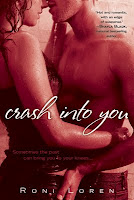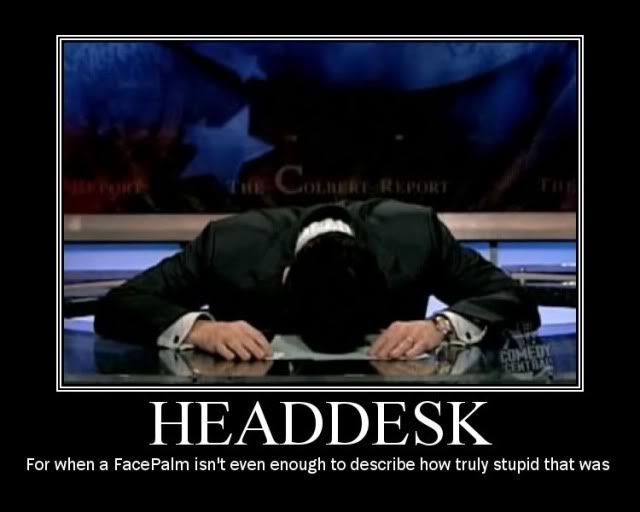Okay, before I get into the nitty gritty, I'd like to make a few announcements:
1) My "official" blog tour starts today. If you visit and comment on posts throughout the tour, there's a chance to win a gift certificate. : ) Today's post is over at Romancing Rakes where I'm talking about The Anatomy of a Sex Scene. (There's also a review of the book here.) I'd love it if you guys would stop by and say hi!

2) So, uh, I have a book coming out. SQUEE!!!!!! CRASH INTO YOU drops tomorrow. Though I will refrain from begging--*ahem* for now--I will be your BFF (you know, virtually braid your hair and paint your toenails) if you check out a copy. (Um, for you boys, I'll buy the beer and cue up the big screen for the bowl games.) And really, if nothing else, you can buy a copy just to see if I've followed all that writing advice I'm sharing on here all the time. And then make fun of me when I didn't. ;)
Okay, so onto today's topic...
Authors Interacting With Readers Online - Some Things to Think About
This past week I ran across a thought-provoking post over at Dear Author, Is there room on the internet for authorial interaction? In the post, Jane talks about the role of the author and when it's appropriate for the author to interact with the readers (when it adds value and when it taints things.)
The post itself is enough to get you thinking, but the slew of comments are just as enlightening. I was truly surprised to find out how some readers feel about authorial interaction.
Most agree (and I can see this point) that an author should not be commenting on reviews--mainly because once the author shows up it can make others clam up. Who wants to say something negative once they know the author is there listening?
But I was surprised to see that this even went as far as applying to the author saying thank you for the review. Jane and some other reviewers mentioned that a thank you almost makes them feel uncomfortable, especially in response to a negative review,because it implies that the reviewer has done a "favor" for the author. (I'm assuming this is for reviews you didn't directly set up with the reviewer. If you directly interacted with the blogger--like setting up a blog tour--then a thank you is obviously in order.)
Now, I'm southern. I say thank you for EVERYTHING. It's like a reflex. To think that my thank you may make someone uncomfortable kind of took me aback. When I say thank you, it's simply because I'm appreciative that the person took the time to read my book and to comment on it publicly (which is press--regardless of the content of the review.) Reviews are important. So my instinct would be to thank someone if I saw that they reviewed my book. (Plus I'm a dorky new author and just want to hug everyone who reads my book, lol.)
But perhaps the thank you should be a case by case basis and should be done privately via email instead of posting it on the review and shutting down other comments.
The other issue that was interesting was how many of the commenters didn't like interacting with authors. They preferred to read and discuss the book without knowing anything about the author. They didn't want to hear the writer's perspective on why they wrote something the way they did.
I can understand this in the forum of a review. You don't want the author "defending" themselves in the comments, but seeing that many are opposed to any interaction is a little surprising and flies in the face of all we're told about connecting with readers online.
Some readers felt very strongly--finding authors "friending" readers on social networking sites as "rude". And another said they had enough drama in their life and didn't want to read about the author's life. Another was unhappy with authors hanging out on "reader" sites. One person said authors should only be known by their work. Also, many assume that if we're online and discussing books that aren't our own, we're just friends with that author and it's not genuine.
This prompted author Courtney Milan to ask in the comments:
How safe is it for authors to participate in discussions of books at all? Do people just assume that authors are friends with the author? Does that chill discussion?
The whole post and discussion was rather enlightening for me, a bit depressing and frankly, isolating. Yes, I absolutely agree that authors should refrain from commenting/defending/attacking in the comments sections of reviews. That's a given.
But now we're not supposed to discuss other books and we're not supposed to go in "reader" groups/areas? Yes, we're writers, but first and foremost we're READERS. Just because I have a book out there doesn't mean I'm not also voracious reader who loves to discuss books with others. Hearing that my presence in a reader group may be construed as something self-serving made me a little sad. Like I can't play on that playground anymore.
And maybe I'm the exception but even before I was a writer, I loved the idea of getting to know the authors behind the books I enjoyed. I liked reading the "why they wrote the book" posts or little explanations and insider information about the story. If I was actually able to discuss/chat about the book with them, well, awesome! So I know that there are other readers out there like me.
And maybe that's why the responses to the post surprised me. And, of course, this is a specific sample and may not represent readers as a whole. Many people commenting on the post were authors and book bloggers. Book bloggers are not your casual readers. They deal with authors daily. So I'm sure if you've dealt with one too many difficult authors, you can become a little more wary and jaded.
But here are my takeaways from the post:
1. Saying thank you publicly for a review may not always be a good thing. Send a note privately if you'd like to thank the reviewer.
2. Commenting on a review in any way can shut down reader discussion.
3. Readers may see you as an intruder with an agenda if you join book discussion groups. (So make sure you don't have an ulterior motive for joining.)
4. You may not be the best person to publicly promo your friends books (and vice versa) because many readers will only see it as helping a friend. This doesn't mean don't do it, but understand that it may hold less weight than independent reviewers so make sure you mix it up when you're promoting your book.
5. Some readers don't want to "connect" with you. It may taint their reading experience. Respect that. So interact, be available, chat, blog but don't go "hunting" readers and injecting yourself into their online lives if you weren't invited.
6. Don't jump into Facebook or Twitter discussions when people are discussing your book unless you're invited or messaged directly.
7. Do everything with genuineness. Don't "friend" people because you want them to buy your book. Friend them because you want to get to know them. (Duh.)
8. If certain issues or questions keep coming up in reviews, don't necessarily address them in the comments. Write a blog post on your own blog answering those questions so that readers who are interested in knowing more can seek it out if they'd like. (Good fodder for FAQ section.)
So what do you think about all this? Were you surprised by any of it? And how do you think these things should be handled? Do you think this represents a large group of readers or is more specific to bloggers who deal with authors daily?














































